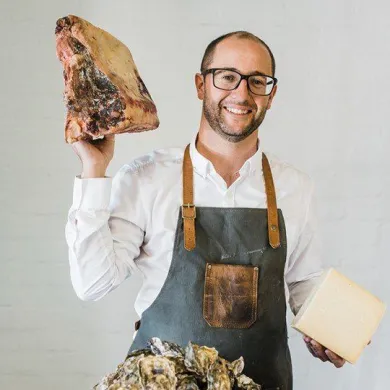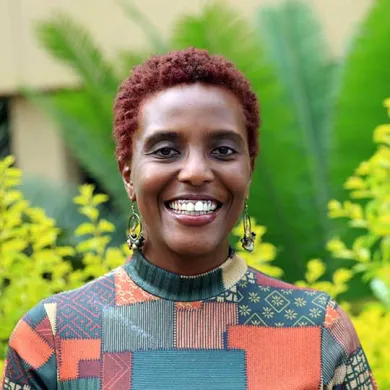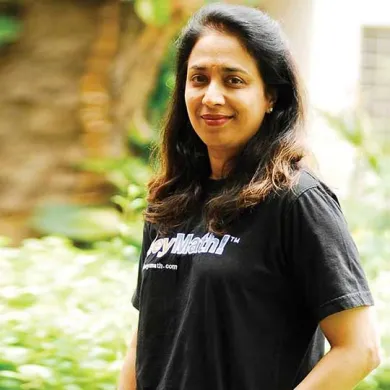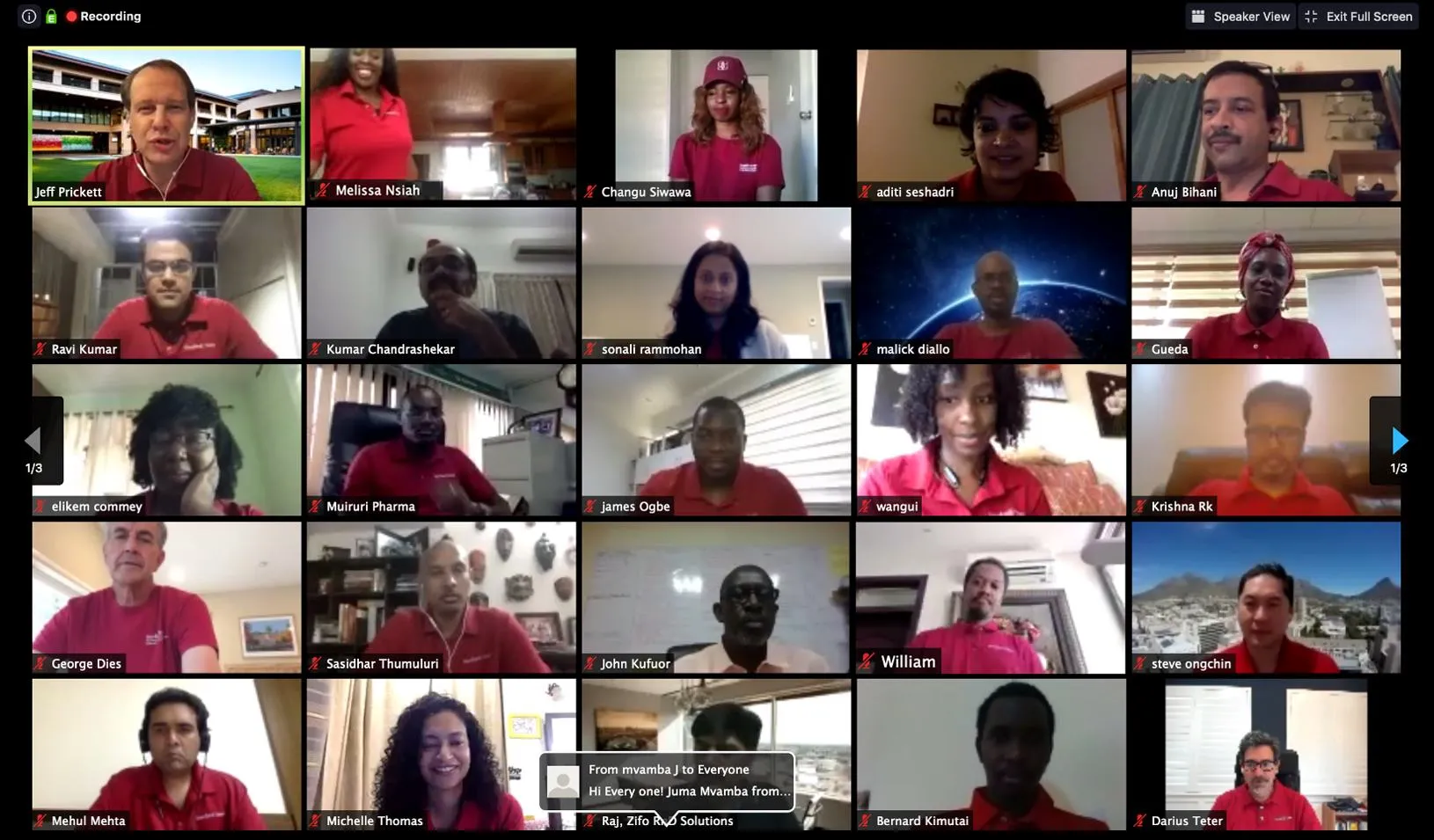At the beginning of the year, Darius Teter, executive director of Stanford Seed, thought he knew exactly what 2020 was going to look like. Stanford Seed, which offers on-the-ground business instruction to entrepreneurs in Africa and India, had just launched its 2020 cohorts with nearly 180 business leaders. A summit of past participants was set for March in Mumbai, with Stanford Graduate School of Business Dean Jonathan Levin kicking off three days of networking.
By early March, however, Teter was tearing up those plans. The conference was scrapped, and in April, the program decided on a dramatic pivot. Stanford Seed is usually focused on helping entrepreneurs accelerate their growth. But as the implications of the pandemic became clear, most businesses around the world were trying to figure out how to navigate the new uncertainties.
“We stepped back and looked at our mission statement,” says Jesper B. Sørensen, a Stanford GSB professor of organizational behavior and Stanford Seed’s faculty director. In light of the mission — to help entrepreneurs build thriving businesses by understanding and addressing their needs — it no longer made sense to continue a program designed for a typical economy. After pausing this year’s cohort, the team turned its attention to the 650 past participant businesses and started drafting plans to assist them through these unusual times.
“We have a variety of companies that may or may not survive,” Teter says. According to a Stanford Seed survey conducted this spring, half of the Seed Transformation Program’s current and former participants have seen their revenues plummet, after years of strong performance. “There’s a lot of pain right now.”
Stanford Seed was created in 2013 to help combat poverty in emerging markets by boosting entrepreneurship. The program’s participants are established small and medium enterprises, and Stanford Seed helps them figure out strategies to “10x” their growth. “They’re already successful,” Teter explains. “They’re trying to figure out how to become super successful.”
The yearlong Seed Transformation Program, which normally involves quarterly weeklong in-person meetings, provides participants with Stanford GSB-level instruction that has been pared down into actionable tools. “The idea was to focus on the strengths of the Stanford business school and figure out what elements could be made available to business founders in developing economies,” Teter says.
After COVID-19 hit, Stanford Seed at first moved the in-person instruction for this year’s cohort online. But as the extent of the pandemic became clear, Stanford Seed paused the program altogether. (It will resume this fall.) In its place, the team architected a new set of pandemic-specific offerings for all 830 current and former participants. They developed faculty-led live webinars on topics like leadership, cash flow management, and crisis HR strategies; they posted curated information to the program’s Facebook Workplace; they provided past participants with “buddies” to help them think through their challenges; and they are now in the midst of two-week workshops to help companies reimagine their business.
Stanford Seed usually places volunteer coaches (about 70% of whom are Stanford GSB alumni) in the field to help recent Seed Transformation Program participants implement their growth strategies. Those coaches had to be evacuated this year, but most have continued supporting their entrepreneurs from afar. Stanford Seed also ramped up its pro bono consulting program, securing consultants — many of whom are also Stanford GSB grads — for more than 100 projects in April alone.
A summer internship program usually sends scores of Stanford students to work on-site at Stanford Seed companies. This year, those jobs are taking place remotely, but Teter says he hasn’t seen a decline in interest among students. In fact, Stanford GSB participation has exploded: 54 of 78 interns are Stanford GSB students this year, compared to 7 of 61 last year. Stephanie Ahn, an MSx ’20 graduate with a background in public health, for example, is helping an IT company in Ghana research product lines while she is job hunting among healthtech companies in the United States.
If there’s a silver lining to the upheaval, it’s that it has brought the Stanford Seed team closer together. With staff spread across seven countries and four time zones, the need to pivot quickly this year has meant daily Zoom sessions (often starting at 6:00 a.m. Pacific Time, which is nighttime in India) so the team could organize and brainstorm as one. “I feel so much more connected to our field staff,” says Sonali Rammohan, Stanford Seed’s head of evaluation and learning. “We’re all marching toward the same vision to help these companies survive and thrive.”
Seed Entrepreneurs Adapt During a Pandemic
“When COVID-19 hit, we couldn’t see past 24 hours.”
Wild Peacock Products was founded nearly 30 years ago outside of Cape Town, when schoolteacher Sue Baker started supplementing her income by selling oysters to restaurants. The company has since grown into a successful high-end foods business that supplies over 1,500 items, including artisanal cheeses, fresh seafood, and local produce, to restaurants and hotels in the Western Cape. When Sue’s son, Ross Baker, now a co-owner, joined Stanford Seed last year, Wild Peacock was growing at 20% to 30% annually.

Ross Baker, co-owner of Wild Peacock Products. | Eye Poetry Photography
All of that ground to a halt when South Africa locked down at the end of March. “Overnight, our customer base was shut down,” says Ross Baker. The country’s closure was particularly strict due to concerns about existing public health issues, like HIV and tuberculosis, and worries that the epidemic could easily overwhelm the country’s fragile health system.
The impact on Wild Peacock was devastating. “You have a 30-year-old business that you’ve built up from zero suddenly being knocked back to zero,” Baker says. “We were terrified.” The company rapidly shifted directions. They converted their food service inventory into food boxes for sale to everyday consumers, which they publicized over social media and through a kitchenware company that had the e-commerce channels Wild Peacock lacked.
In the following months, Baker has doubled down on the retail business. It has required the implementation of an e-commerce website and new packaging and marketing processes. The retail element had been only a small part of the plan Baker developed at Stanford Seed. Baker had originally planned to dramatically scale up the food-service operation and move Wild Peacock from a family-run business to one with a more independent corporate governance.
Still, the learnings from Stanford Seed proved invaluable, Baker says. One of the program’s key concepts is “post-heroic leadership”— the idea that entrepreneurs should stop thinking they need to do everything themselves and instead learn how to empower a strong team. Baker had taken that advice and recently built out his leadership ranks. When the pandemic hit, the new leaders helped architect the path forward. “I don’t think I would have had the same experience of the last three months if I hadn’t done the course,” Baker says.
About a month after lockdown, South African restaurants were given permission to offer takeout. But the kind of sit-down service that uses the ingredients supplied by Wild Peacock is still in limbo. So Baker’s worries aren’t over, but he feels more optimistic today than he did three months ago. “When COVID-19 hit, we couldn’t see past 24 hours,” he says. Now, he says, he can envision where future opportunities might lie. “You need to [embrace] the mindset that you are starting your business from scratch,” he says. “The markets are going to be very different when this is all over. Some people are going to be in a very good position, and some [companies] are going to be dead. If you embrace [the changes], the opportunities are there.”
“What saved the business is those decisions that were made in a couple of hours.”
On Sunday, March 15, the Kenyan government shut schools and banned public gatherings. Waceke Nduati and her team at Centonomy considered postponing their in-person finance classes for a few weeks, assuming the crisis would be over by then. But the next day, the team brainstormed for a few hours and decided instead to take the audacious step of moving everything online — that day.
It was a mad scramble. Centonomy staffers had to get up-to-speed on Zoom, a tool they hadn’t regularly used before. They had to contact students to both let them know about the switch and help them install Zoom — on mobile phones as well as laptops. Over the coming weeks, the instructors gradually mastered the ins and outs of teaching via video and technical glitches like frozen streams.

Waceke Nduati, founder of Centonomy. | Courtesy of Waceke Nduati
“We saw the culture work,” Nduati says of the flexibility she has fostered in her team of 22. “People have been empowered to run on their own ideas and decisions, and not to overthink things.” Three months later, Nduati is grateful for her team’s speed and agility that first day in March. “What saved the business is those decisions that were made in a couple of hours,” Nduati says.
Nduati founded Centonomy in 2009 to improve financial literacy in Kenya. Like Stanford Seed, Nduati believes that developing economies will solve poverty and build wealth by improving the money acumen and financial skills of individuals and small businesses, and her courses focus on personal finance and the management of small enterprises.
Nduati participated in the Seed Transformation Program in 2018, and then spent much of last year working with one of Stanford Seed’s coaches, Laurie Fuller, a Stanford alum with an MBA from New York University’s Stern School of Business, to put in place the systems and processes that would allow her company to grow.
In the last decade, Centonomy has reached about 100,000 people through its paid courses and free presentations. Going online was always part of the plan, but Centonomy had intended to do it over a matter of months, not in a single day.
Nduati had also planned to expand to other countries. “We always knew we wanted to move beyond Kenya,” she says. But she thought it would require setting up local branches and replicating the in-person model. Given the amount of effort that would take, it was not a top area of focus. “When you have something that’s working,” she says, referring to the Kenya program, “it takes you longer to do new things.”
So when a new round of courses began this summer (the personal finance course lasts 12 weeks, and the entrepreneurship course lasts 14), Nduati was excited to discover that about 15% of enrollees were from abroad. Among the students were people living in Uganda, Rwanda, Tanzania, South Africa, Ghana, and Burundi, as well as Kenyans living in the U.S., the U.K., and Russia. “What COVID-19 has done is force us to move faster on some things,” Nduati says. “For us, there’s no going back.”
“Demand has gone through the roof.”
When the SARS outbreak hit Singapore in 2004, Nirmala Sankaran’s HeyMath! was one of the companies that helped Singapore develop e-learning capabilities. Sankaran had founded the digital business four years earlier, to improve math instruction. In the wake of SARS, Singapore developed contingency plans in case the schools ever needed to be closed. “They decided never to be caught off guard again,” Sankaran said.
With the COVID-19 pandemic this year, HeyMath! was again called upon to help school systems boost their digital teaching capabilities. The company has long operated in South Africa, but mostly offline, via netbooks with math programs pre-loaded. In the last few months, however, the company implemented online offerings, building out a website for students and teachers, and launching apps that could be used by children who didn’t have laptops or, in some cases, reliable sources of electricity.

Nirmala Sankaran, co-founder of HeyMath! | Photo courtesy of Nirmala Sankaran
In Sankaran’s native India (HeyMath! is based in Chennai), the company has developed homework programs that teachers can use to supplement videoconferencing lessons. “Demand has gone through the roof,” Sankaran says.
Sankaran, who worked for Citibank for 12 years, created HeyMath! in 2000 because she was looking for “something more exciting” — and meaningful. While the growing knowledge economy is hungry for people with math skills, many students develop an aversion to the subject, which Sankaran chalks up to poor teaching methods. “It’s a big, universal problem,” she explains. “We felt that one of the ways to solve it was to observe good math teachers and digitize their best practices.”
HeyMath! is primarily a business-to-business company. It has worked with private schools in Singapore and public schools in South Africa. Recently, interest in edtech in India has picked up, which is what prompted Sankaran to join Stanford Seed. “We wanted to do a very honest diagnosis of our strengths and weaknesses,” Sankaran says. “We have all the ingredients for [giant] success,” she says, “so what has held us back?”
Sankaran says a recent Stanford Seed webinar by Stanford GSB marketing professor Baba Shiv, on how to identify trends emerging from the pandemic — part of the programming Stanford Seed staffers whipped up this spring — has prompted her team at HeyMath! to further explore where opportunities might lie in the post-COVID-19 world. “The lockdown has forced schools to question their most basic assumptions and constraints,” Sankaran says. “The value of what we offer — and what we can potentially offer — has only increased.”
— E.B. Boyd
For media inquiries, visit the Newsroom.



